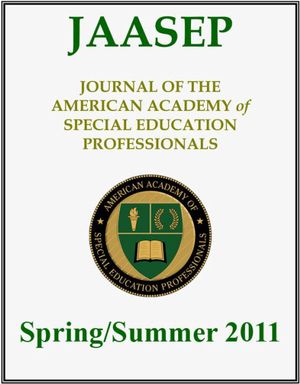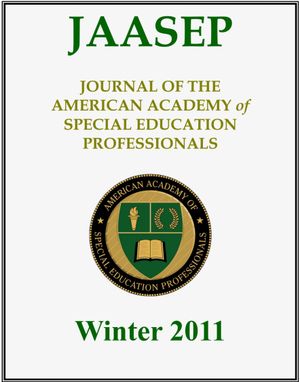$6.95
Inclusive Education and Rural Middle School General Education Teacher Preparedness
Abstract
With the reauthorization of the Individuals with Disabilities Education Improvement Act (IDEIA) in 2004, students with disabilities are expected to be educated in the least restrictive environment to the greatest extent possible. Through the practice of inclusive education, students with disabilities who are classified and possess IEPs can be placed in the general education setting. This has impacted general education teachers who are not trained in special education and are now expected to teach inclusion classes. This study focused on the unique aspect of rural middle school general education teachers. Studies in rural school communities are limited when compared to studies conducted in urban and suburban areas. The purpose of this study was to describe the background, training, preparedness, and attitudes of rural middle school general educators in a rural section of southern New Jersey. This qualitative descriptive study was conducted utilizing an open-ended questionnaire and classroom observations. Through the six-phase model of thematic analysis established by Braun and Clarke (2006), eight themes were identified in the study: struggles equal referral, IEPs provide equity, insufficient IEP involvement, parental importance, minimal training, inadequate district support, inclusion is beneficial, and more training desired. The results of this qualitative study revealed that while participants believe in inclusive education, they feel unprepared to meet the diverse learning needs of students with disabilities.
Inclusive Education and Rural Middle School General Education Teacher Preparedness



